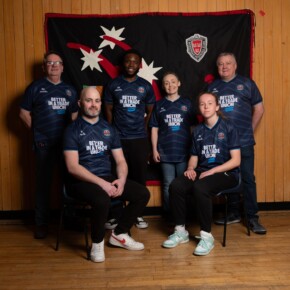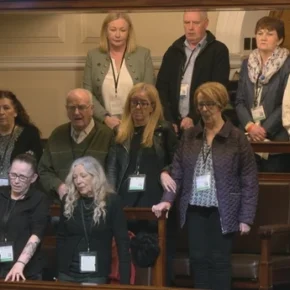Impact of Covid-19 on youth services in Dublin highlighted in new report
Padraig Conlon 28 Sep 2020
Covid-19 has revealed a range of inequalities and increased the problems experienced by many young people according to new research published today.
A number of youth groups in Dublin have contributed to the research report by the National Youth Council of Ireland (NYCI).
The report, ‘A Review of the Youth Work Sector Response to the Covid-19 Pandemic’, was produced by researchers Deborah Erwin and Lorraine Thompson, using a combination of quantitative and qualitative research tools, including a survey of youth services, focus groups with young people, ‘check-in’ sessions with youth workers, and interviews with youth-sector stakeholders.
Dublin contribution to the report
Dublin groups that participated in the stakeholder interviews and ‘check-in’ sessions that informed the report include:
Bonnybrook Centre, Sphere 17 in Coolock;
Curtain Call, Clondalkin Youth Service; Crosscare (Dublin West);
Girls Brigade Tallaght;
Swords Youth Service, Crosscare;
Blakestown Mountview Youth Initiative;
Feachtas Óg-Ghluaiseacht na Geailge, Tallaght;
RICCYS Youth Café, Irishtown;
St. Andrew’s ‘Talk About Youth’ project, Pearse Street;
South-West Inner-City Network Clubhouse, and;
Bluebell Youth Project/Canal Communities Regional Youth Service.
In addition, four young people from Curtain Call, Clondalkin Youth Service, Crosscare participated in one of the focus groups that informed the report.
Girls Brigade, Tallaght is highlighted in the report as a “good practice” example of how the youth work sector has responded to the Covid-19 pandemic.
Members of Girls Brigade, Tallaght engaged in a COVID Hearts project where they sent handmade knitted or crocheted hearts to patients at Tallaght University Hospital. Swords Youth Service, Crosscare is also cited as a “good practice” example, members made up Positivity Packs to distribute to young people at risk.
While Dublin youth groups and young people were active in the research that informed the report, consultation took place with youth-sector representatives nationwide.
Overall, the report highlights how the Covid-19 pandemic made it more difficult for youth services to engage with ‘at risk’ or marginalised young people.
67% of youth workers surveyed cited this as a key limitation of the move to online models of working.
Commenting today, Mary Cunningham, CEO of NYCI, said:
“The research shows clearly that young people who were already most at risk became the most disconnected during the pandemic.
“Young people already experiencing poverty, for example, became even more isolated. Covid-19 had a compounding effect, whereby online engagement was significantly hampered for young people already experiencing marginalisation in various ways.
“The pandemic exposed a whole range of inequalities and exacerbated vulnerabilities in the youth sector.
“While, undoubtedly, youth workers in Dublin – and throughout the country – showed their creativity and flexibility in numerous ways, it does not make the marginalisation experienced by young people any less challenging.
“The drop in engagement levels paints a stark picture and demonstrates just how important face-to-face youth work is, particularly for those in marginalised and vulnerable situations.
For more information visit: https://www.youth.ie/











